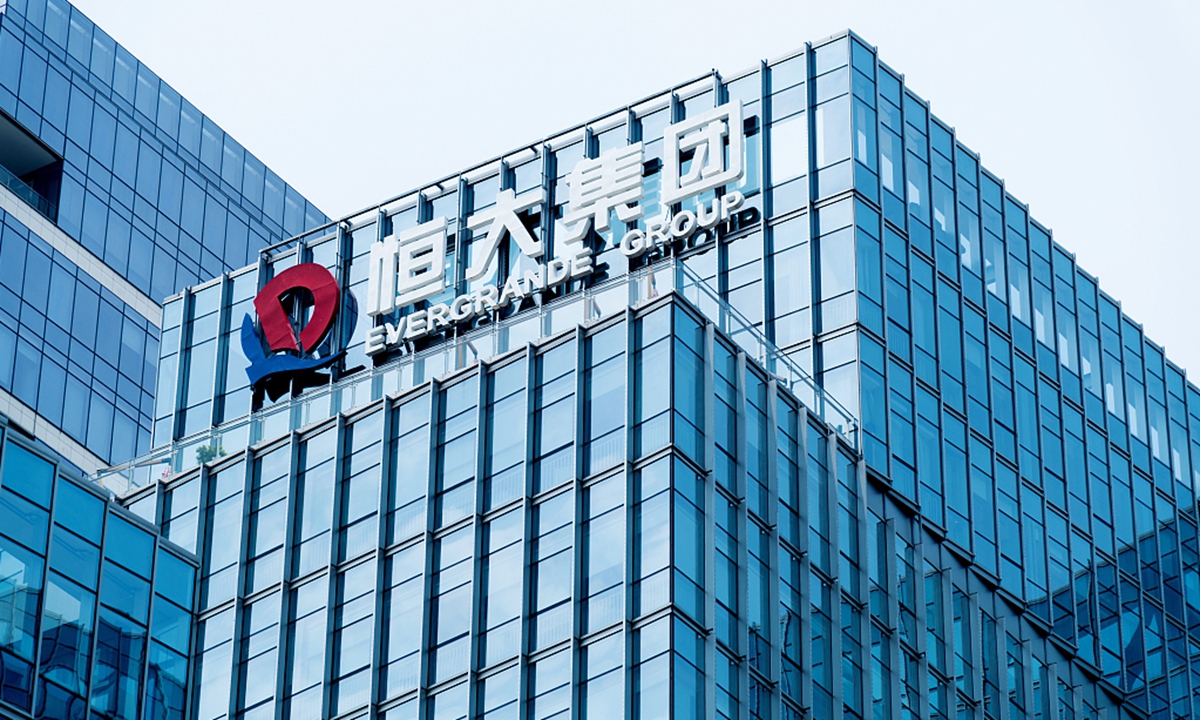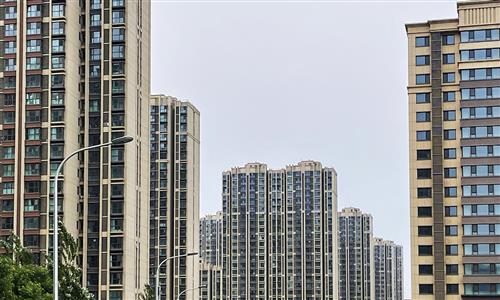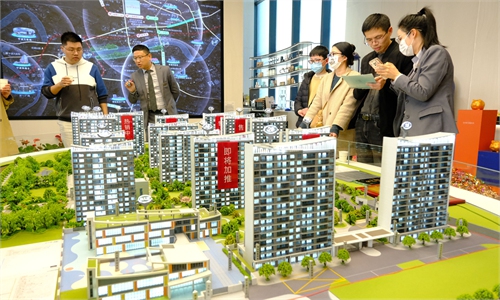HK court orders liquidation of Evergrande; ‘impact on general market will be limited’

Evergrande Group Photo: CFP
A Hong Kong court ordered the liquidation of China Evergrande Group on Monday. The decision indicated a lack of progress in the company's debt restructuring plan, observers said, while noting that the impact on the general market will be limited as the result was largely expected.
Experts also refuted foreign media hype over the "ripple impact" of the decision, pointing out that the single case of Evergrande should not be exaggerated, and the sector is on track for a stable recovery as support policies take effect.
An application for liquidation is a common debt recovery measure in the Hong Kong legal system. When a court issues a winding-up order, it declares that the company is entering bankruptcy liquidation proceedings, a close follower of the company who asked to remain anonymous told the Global Times on Monday.
This ruling signified the largest real estate company bankruptcy liquidation in the Hong Kong capital market, the person said, while warning of a "limited impact" on the market as the liquidation had been expected, and now it's been confirmed.
The liquidation petition was first filed in June 2022. After eight adjournments, Evergrande's final extension application announcement was made on December 4, 2023. The announcement revealed that the High Court of Hong Kong approved the company's extension request, further postponing the hearing of the petition to January 29, 2024.
The Wall Street Journal earlier reported that negotiations to prevent the break-up of the company didn't lead to a deal over the weekend, citing people familiar with the matter.
In response to the latest court decision, Xiao En, chief executive of Evergrande Group, told Chinese media outlets on Monday that the company will ensure that apartments that are still being built will be delivered despite the liquidation order. The order would not affect the operations of Evergrande's onshore or offshore units, he added.
The group will continue to endeavor to safeguard the stability of its business operations, push forward the key work of guaranteeing the delivery of residential housing and maintaining the quality of property services, as well as making every effort to seek a final resolution of risks and the disposal of company assets, Xiao said.
Evergrande was closely followed by many global investors over the past year, viewing it as a symbol of the China's real-estate market. Some fear that the Evergrande liquidation will send ripples through other property developers and even cause global shockwaves.
"To relate Evergrande's case to other companies is over-association," Dong Shaopeng, a senior research fellow at the Chongyang Institute for Financial Studies at the Renmin University of China, told the Global Times on Monday.
Depending on the quality of assets and creditors' rights, different companies have different conditions, Dong said, predicting a sound and stable recovery in 2024 as support policies kick in.
Amid a broad correction across the property industry, total investment in real estate development in China reached 11.0913 trillion yuan ($1.5 trillion) last year, down by 9.6 percent from 2022, according to data from the National Bureau of Statistics.
Chinese policymakers have rolled out support measures to inject momentum into the property sector, such as easier access to loans for developers, cuts in property mortgage rates and relaxed rules on buying homes.
On Monday, Chinese Vice Premier He Lifeng urged all localities to promptly establish and efficiently operate an urban real estate financing coordination mechanism, carry out specific real estate financing projects as soon as possible and firmly prevent new cases of the legal misappropriations of pre-sale funds, per Xinhua.
On Friday, China's housing regulator said that in response to significant changes in the supply and demand dynamics of the real estate market, the agency will accelerate the establishment of a new development model for the real estate sector.
The model aims to combine short- and long-term measures, address root causes, and foster the stable and healthy development of the real estate sector.
The regulator emphasized the need to delegate housing policies to individual cities, implement targeted measures, and encourage specific strategies to be taken by each city. They called for the effective use of policy tools and the delegation of regulatory autonomy to cities, allowing them to adjust real estate policies according to each city's local conditions.
Guangzhou, South China's Guangdong Province, announced that the purchase of residential properties with a floor area of 120 square meters or more will no longer be subject to the government's purchase restrictions. It was the first among the nation's first-tier megacities to partially lift the restriction on property purchases.



